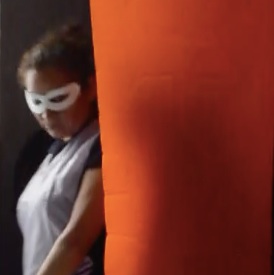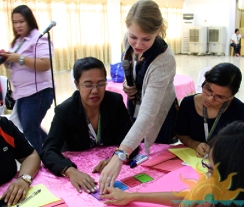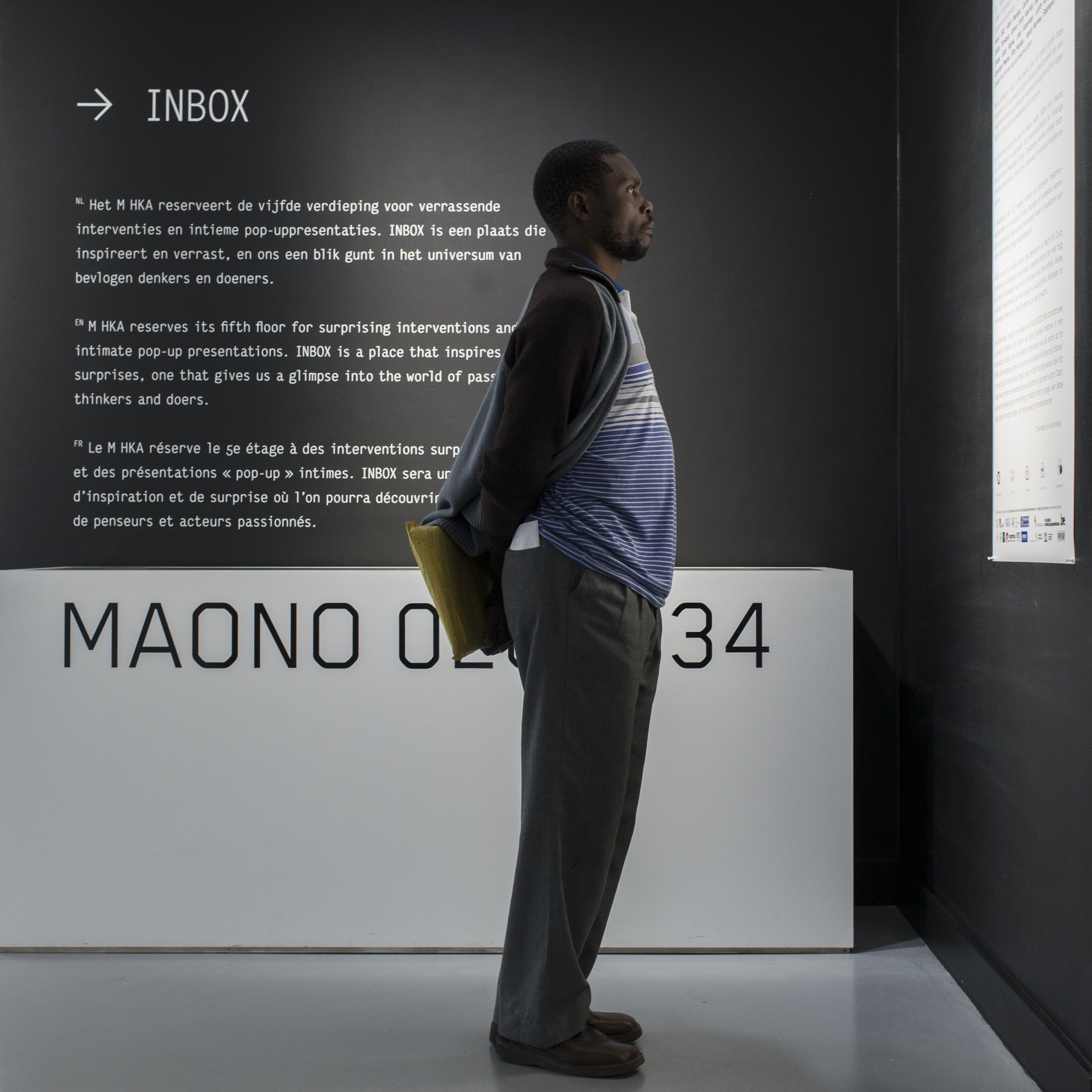With the support of the UNESCO PARTICIPATION PROGRAMME 2014-2015
WFSF received support under UNESCO Participation Program 2014-2015 to extend our World Futures Learning Lab into a second stage. The projects for the second stage included projects in Mexico, Haiti and the Philippines. A second stage was also developed for the DR Congo Project.
The 2014-2015 Pilot Programmes –
Haiti
The Haiti project was developed by Patrick Corsi who is a designer of innovation strategies with in-depth experience with innovation in the Caribbean. From 2000 untill 2012 he was Associate Professor ISTIA Innovation at the Institut Des Sciences et des Techniques de l’Ingénieur (ISTIA), d’Angers France. Corsi proposes an active educational activity in Haïti, among the world’s poorest countries, stricken by natural disaster with the earthquakes of 2010. This course introduced foresight/futures studies methods with approaches and materials adapted to connect into regional realities and intensive design-practice based workshops using concrete cases of local interest and value.The Haiti workshop addressed a clearly pre-defined and specific subject area: distance learning for university education in Haiti. All of the activities, exercises, discussions and activities were geared at formulating proposals for projects, designs and breakthroughs in this area. The design-based approach of the workshop comes from CK theory (Corsi) and relies on clearly outlined phases and steps to build innovative ideas/designs/proposals for things that matter.
For full details and the final report please follow this link.
Mexico
 The Mexican activity was developed by WFSF Executive Board member & WFSF Vice-President for the Iberam Region, Ph.D. Guillermina Baena Paz and the young futurist Alethia Berenice Montero. The two members propose a course for reintegration and personal futures with teen women who have been in conflict with the law. They intend to use the methods and techniques of Forward Theater and holistic foresight techniques.The Mexico learning lab focused exclusively on personal futures but also included some attention for possible changes in the communities and environments the women (currently in prison) will return to. In its work with models of possibility for their reintegration, the women are stimulated to break with traditional dominant paradigms, to change their attitudes, to think further ahead than the immediate future and to develop emotional, spiritual, corporal and intellectual intelligence.
The Mexican activity was developed by WFSF Executive Board member & WFSF Vice-President for the Iberam Region, Ph.D. Guillermina Baena Paz and the young futurist Alethia Berenice Montero. The two members propose a course for reintegration and personal futures with teen women who have been in conflict with the law. They intend to use the methods and techniques of Forward Theater and holistic foresight techniques.The Mexico learning lab focused exclusively on personal futures but also included some attention for possible changes in the communities and environments the women (currently in prison) will return to. In its work with models of possibility for their reintegration, the women are stimulated to break with traditional dominant paradigms, to change their attitudes, to think further ahead than the immediate future and to develop emotional, spiritual, corporal and intellectual intelligence.
For full details and the final report please follow thik link.
The Philippines
 The Philippines activity was developed by Cesar Villanueva, a member of the executive board of WFSF and member of the International Advisory Board of the Center for Engaged Foresight and Shermon Cruz, currently the Director of the Center for Engaged Foresight. This project seeks to introduce futures studies and foresight as a tool to strengthen the foresight awareness of decision-makers and key actors involved in shaping disaster reduction and management programs and city development planning in highly vulnerable cities and communities to climate change in the Philippines. The Philippines learning lab was designed to further explore and imagine alternatives for women-gender contexts and roles in transforming Philippine city futures. Filipinos ways of thinking, perceiving, learning and shaping (city) futures is driven and informed by patriarchal ways of knowing and learning. At the same time, different issues and problems disproportionately impact women. This seminar workshop highlighted women as innovators and agents of change in mitigating and adapting to such factors.
The Philippines activity was developed by Cesar Villanueva, a member of the executive board of WFSF and member of the International Advisory Board of the Center for Engaged Foresight and Shermon Cruz, currently the Director of the Center for Engaged Foresight. This project seeks to introduce futures studies and foresight as a tool to strengthen the foresight awareness of decision-makers and key actors involved in shaping disaster reduction and management programs and city development planning in highly vulnerable cities and communities to climate change in the Philippines. The Philippines learning lab was designed to further explore and imagine alternatives for women-gender contexts and roles in transforming Philippine city futures. Filipinos ways of thinking, perceiving, learning and shaping (city) futures is driven and informed by patriarchal ways of knowing and learning. At the same time, different issues and problems disproportionately impact women. This seminar workshop highlighted women as innovators and agents of change in mitigating and adapting to such factors.
2015 DR Congo Fellowship
 Fitfteen individual artists based in Lubumbashi participated in MAONO, the development education project to which the 2012-2013 LEALA local project was connected. In 2015 the images of the future produced over the course of the three year project, were presented in an exhibition at the Museum of Contemporary Art of Antwerp. The participating students’ were offered an opportunity to provide additional material to be included in the overview. The artists were asked to provide updates of the work they had created. To build on the efforts of the previous years, one artisit participant was selected for the LEALA fellowship. Jean Katambayi, was the beneficiary of this fellowship which helped him to further develop the work he had produced with the LEALA students in Lubumbashi.
Fitfteen individual artists based in Lubumbashi participated in MAONO, the development education project to which the 2012-2013 LEALA local project was connected. In 2015 the images of the future produced over the course of the three year project, were presented in an exhibition at the Museum of Contemporary Art of Antwerp. The participating students’ were offered an opportunity to provide additional material to be included in the overview. The artists were asked to provide updates of the work they had created. To build on the efforts of the previous years, one artisit participant was selected for the LEALA fellowship. Jean Katambayi, was the beneficiary of this fellowship which helped him to further develop the work he had produced with the LEALA students in Lubumbashi.
Jean Katambayi was present at the opening of the exhibition in May 2015. He was accompanied by the two Agence Future volunteers based in Belgium who ran the LEALA project of the previous biennium. The artist had the opportunity to further develop his future related work and share it with arts-minded audiences in Belgium in formal workshops and presentations as well as a range of informal meetings. During his three-week stay in Belgium he also worked on a new piece related to the history of mining in the DRC. This piece, called Sol-Sur-Sol, emphasizes how layer upon layer of factors and facts from the past and the present, provide a tiered lens through which Congolese futures can be imagined.
